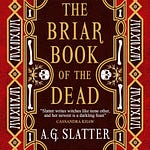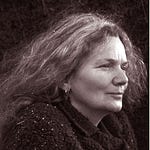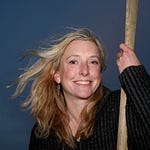I have a book of Outer Hebrides folklore by Otta F. Swire (The Outer Hebrides and Their Legends), collated by her in the early 1960s and long out of print. (It’s one of four such collections she put together; the others deal with the Inner Hebrides, Skye, and the Highlands of Scotland). I found it in a secondhand bookshop shortly after we moved to the Isle of Lewis (which, for those of you outside the UK, is part of the Outer Hebrides) in 2010. The book is not your usual random collection of folk tales associated with a particular country or a region; instead, Swire travels through the islands picking up threads of fairy tales, ghost stories, placename-associated lore, legends and fragments of mythology as she goes. It’s a folkloric travelogue.
I have so many favourite bits of this book. I love the story which begins it, and tells how the Outer Hebrides came to be formed. (There’s an enterprising young man, a friendly each uisge – water-horse, a monstrous giant, and nine maidens.) I love the story of the Fishes’ Dance from Broad Bay on the Isle of Lewis, which tells that, on the night of the full moon – but only if the moon’s path shines silver on the sea, not gold – fish come out of the water and dance on their tail fins on the beach. They are led by whales and porpoises, and the last in line are shoals of the smallest fish of all. One night, they were accompanied by a barefoot boy who had borrowed his grandfather’s fiddle; he played ‘reels and strathspeys, old dances and old songs, and the fish kept time to them all.’ I love the story of three old women who shapeshift into black cats, and the folklore which tells that members of the Clan MacCodrum were turned into selkies by the angry Little People because one of their number once killed a cuckoo: a fairy bird, from Tir na nOg. The cuckoo, we are told, is so afraid of becoming an earth-dweller that she has never dared to build herself a nest of her own here, in case the gods think her ‘domiciled’ on earth and never more allow her to return to Tir na nOg.
Every part of the island has its seal-women, or its each uisge. That land was steeped in story, and when we lived there, there were resonances – ripples – of them still. For a story-mystic like me, it was heaven. I walked stories, I breathed stories, and the stories of that island sank into my heart and my imagination and have never, not for a single moment, let go of me. So many of my stories in Foxfire, Wolfskin and other stories of shapeshifting women – ‘The Bogman's Wife’ and ‘The Water-Horse’ above all – sprang almost fully formed from an imagination that was still informed by living in a place where the stories were many, and alive.
I heard another story once, from the Isle of Harris, just across the mountain from where we lived; I slipped it into the ‘Water-Horse’ story in Foxfire, Wolfskin: ‘A Tarbert fisherman caught a particularly fine herring. So fine and beautiful was the herring, and so fond did the fisherman find himself of it, that he stuck it in the breast pocket of his jacket to keep it safe and warm. It was not the cleverest idea in the world, and well, that herring struggled. Of course it did; it was a fish out of water. It couldn’t breathe. But like any animal, it wanted to survive. So it gaped and it gasped, and finally it found a way to take its oxygen from air. To bypass its gills, to open its little round mouth, and let the air find its passage through.
The herring was happy enough in its way, they say. The man loved it, and fed it; the man sang old fishing shanties to it, to lull it to sleep at bedtime. Then, one night, the man went to the pub as sometimes he did on a Saturday. But this particular Saturday happened to be his friend’s birthday, and the man had a little too much to drink. Staggering home along Pier Road, he decided to go and relieve himself into the water. But just as he was unzipping his trousers, he caught his foot on a misplaced stone, and pitched himself to the ground. The herring tumbled out of his breast pocket, fell into the sea – and drowned.’
I think that might be the saddest story I’ve ever heard.
When we moved to Ireland, the Gaeltacht of County Donegal were we first lived had a good bit of that, and the Connemara Gaeltacht had plenty of it too. There is nowhere that ever has laid claim both on my heart and my imagination like the wild western shorelines and boglands of the Isle of Lewis (or ever will), but Ireland gave it a good run for its money.
Now I live in a place where so many of the stories of the land around me have been overlaid by industrial sheep-farming, and it is crippling my imagination. (This is in no way to suggest that Wales is not a storied land – it is, of course, and there is a vast richness of tradition here. Just not in the specific place where I now live, stripped of old woodland and all turned to fenced-in grazing land.) I have written about, and taught workshops on, how to reclaim/ recreate your own stories of place, but that practice assumes a bedrock to work with. Here, in this small patch of the world, it’s as if the stories have faded. Or maybe I’m just not sufficiently in tune with the place to dig them up and bring them to life again. Or maybe my place-based imagination is very specific – requiring, in order to thrive, only wild, wet and windy shorelines, bare rocky mountains, and the bleakest of moorlands and bog. And maybe an ancient oakwood or two.
In all of these ponderings, I’ve been focusing in – and not for the first time – on the two very pertinent and insightful questions that Robert Macfarlane poses in The Old Ways: ‘What does this place know of me that I cannot know of myself?’ And, ‘What do I know when I am in this place and nowhere else?’ Robert similarly suggested, in a Foreword he wrote for an anthology I conceived of and published in 2010 (A Wilder Vein, Two Ravens Press) that ‘cognition is site-specific, or motion-sensitive: that we think differently in different landscapes. And therefore, more radically, that certain thoughts might be possible only in certain places, such that when we lose those places, we are losing kinds of imagination as well.’ Or when we move from those places, we lose certain kinds of imagination as well. My 2023 mission is to reclaim that imagination of mine, in a place that hasn’t yet quite revealed itself to me – but which will not be this place.
Anyway: it’s almost Christmas, and so I have for you the gift of a story from the islands: a story of my own, a story which emerged out of my relationship with the land there, in what I always think of as an act of co-creation. If you’ve read Foxfire, Wolfskin you’ll know it already, but it’s my favourite story from the book, and although rather dark, it’s one which is very close to my heart. And so here it is in my own voice; click on the audio at the top of this email to read it.














Share this post